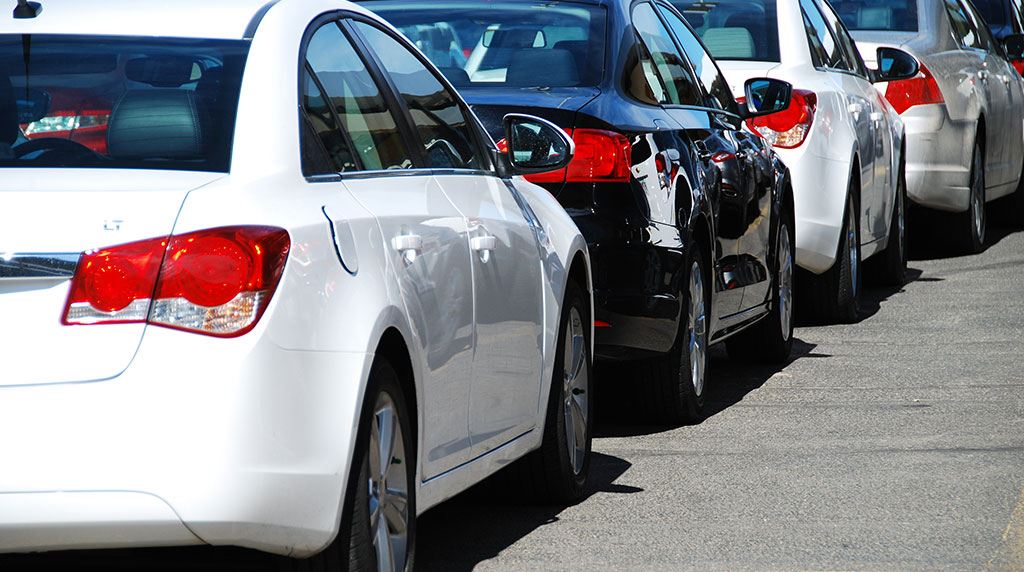The preferences towards private buyers being exercised by some OEMs and dealers have been triggered by long production and delivery delays as some OEMs and dealers have appeared to favour private buyers who pay full retail prices.
But long standing, high volume fleet customers are now putting pressure on OEMs to get priority on orders and deliveries.
In the UK the issue has reached the point where fleet managers are talking of boycotting OEMs which left them without cars, especially those who cancelled deliveries at short notice.
The talk in fleet circles in the UK is that fleet managers ‘have long memories’.
Australasian Fleet Management Association (AfMA) executive director Mace Hartley said that the bias to private buyers can be seen by the ratio of business vehicles compared with private vehicle sales in Vfacts data.
He said business sales including government and rental were more than 53 per cent of total new vehicle sales in 2018 and 2019 but is now just 44.3 per cent March 2023 year to date.
“There’s no doubt that consumers are being prioritised over fleets,” he said.
“Fleets had supply constraints even as COVID started. Prior to COVID, many fleets had a replacement cycle of three to five years. That has been stretched out to seven years due to supply constraints.
“Typically, a fleet that has a five year replacement cycle will change 20 per cent of its fleet each and every year. Being pushed to a seven year replacement cycle creates a huge pent up demand as fleets seek to return to five-year cycles.”
The Institute of Public Works Engineering Australasia (IPWEA) Fleet told GoAutoNews Premium that the lack of supply of new vehicles over the past few years had placed pressure on local government fleets.
“While manufacturers have faced significant challenges in securing and delivering stock to meet demand, a feeling has developed amongst fleet managers that passenger and light commercial vehicles were allocated to more profitable retail customers over fleets who purchase under agreed government pricing contracts,” it said.
“IPWEA Fleet recommends organisations prepare Fleet Asset Management Plans and establish a 10-year replacement program.
“Our members that had well-developed and detailed replacement programs were able to work with their supply partners to access stock as per their long term replacement plans with only minor adjustments to the delivery schedule.
“Some member organisations were able to change vehicle brands to access new vehicles sooner. With plant and equipment there are less options to switch suppliers so fleet managers have delayed the changeover using a risk-based replacement tool developed by IPWEA Fleet for its members.”
AfMA’s Mr Hartley said that each vehicle brand or dealership “make their own view on how well they support small to medium businesses in regards to their fleet usage”.
He said that Isuzu Ute was one brand that “had done a really good job of sharing the love between their retail customers and their fleets.”
“They’ve managed to support all fleets during what’s been a very difficult time.”
Mr Hartley said that along with Isuzu Ute, Mazda, Hyundai and Kia had been supportive of both private and fleet business.
“Both these brands (Hyundai and Kia) are quite important to the fleets in regards to transition to zero emissions vehicles,” he said.
“In the ute category, Isuzu Ute and Mazda have become winners out of this tight supply situation and have secured new customers creating a transition away from the more dominant ute manufacturers.”
The problem isn’t peculiar to Australia. In the UK, fleet operators are considering a boycott of certain manufacturers as supply issues and a breakdown of communication pushes them to breaking point.
The relationships between car manufacturers and fleet operators have reached an all-time low, according to the UK fleet industry body, the Association of Fleet Professionals (AFP).
AFP, which represents the interests of UK businesses which operate cars and vans, said its members are often unable to even get hold of representatives from major car and van makers to discuss their issues.
It also said that fleet operators have reported having orders cancelled at late notice and suggested that large fleets are often being placed last when it comes to allocating stock.
The situation is causing high degrees of ill feeling within the fleet industry and AFP said there was talk among its members of organising boycotts of some manufacturers.
AFP chair Paul Hollick said: “As an organisation, we don’t think any form of boycott would be an effective strategy but the fact that such an idea is being raised just shows the strength of feeling.
“A refrain we hear time and again from fleets is that, once supply returns to some kind of normality, the worst-offending manufacturers will not be easily forgiven and our members will not work with them in the future where a choice exists. Relationships feel at an all-time low.”
AfMA’s Mace Hartley agrees. “Some manufacturers, to some degree, have walked away from their fleets,” he said.
“That’s because supply is tight and dealers make more money from private sales.
“But we will likely see a change in that behaviour as interest rates bite, consumer demand will start to dry up and supply becomes freer over this next 12 months.
“Then we’ll see the OEMs wanting to go back to their fleet buyers but fleet managers have long memories. New relationships forged through support in tough times will grow stronger leaving others to reflect on what was.”
Automotive Management Online publication (AM) reported last week that in the UK the bias to private sales by OEMs and dealers “was at odds with the recent move towards agency models and direct sales arrangements, where manufacturers will rely on building stronger relationships with fleets to drive sales.”
The AFP said that in the UK, “with a couple of possible exceptions complaints seem to be consistent for almost every car manufacturer.”
“There’s a general perception that this issue is getting worse rather than better,” it said.
“Everyone knows and understands that there are ongoing production issues affecting almost every manufacturer but no-one can comprehend why this has seemingly caused a complete breakdown in responsibility and communication.
“We are hearing regular stories from across our membership about orders for dozens or even hundreds of cars and vans being cancelled more than a year after they were first made and within weeks of when they were due.
“This leaves fleets high and dry. It’s having a direct impact on businesses that need transport and, on a personal basis, potentially damages the perception of the fleet manager within their business.”
By Neil Dowling















 Read More: Related articles
Read More: Related articles

